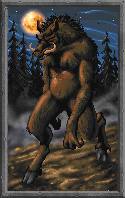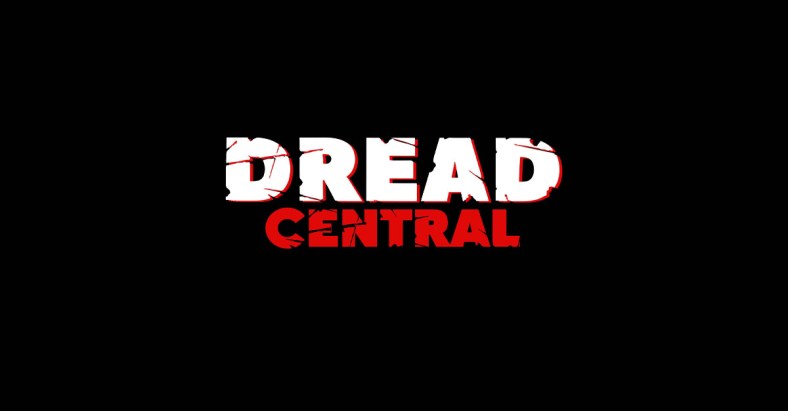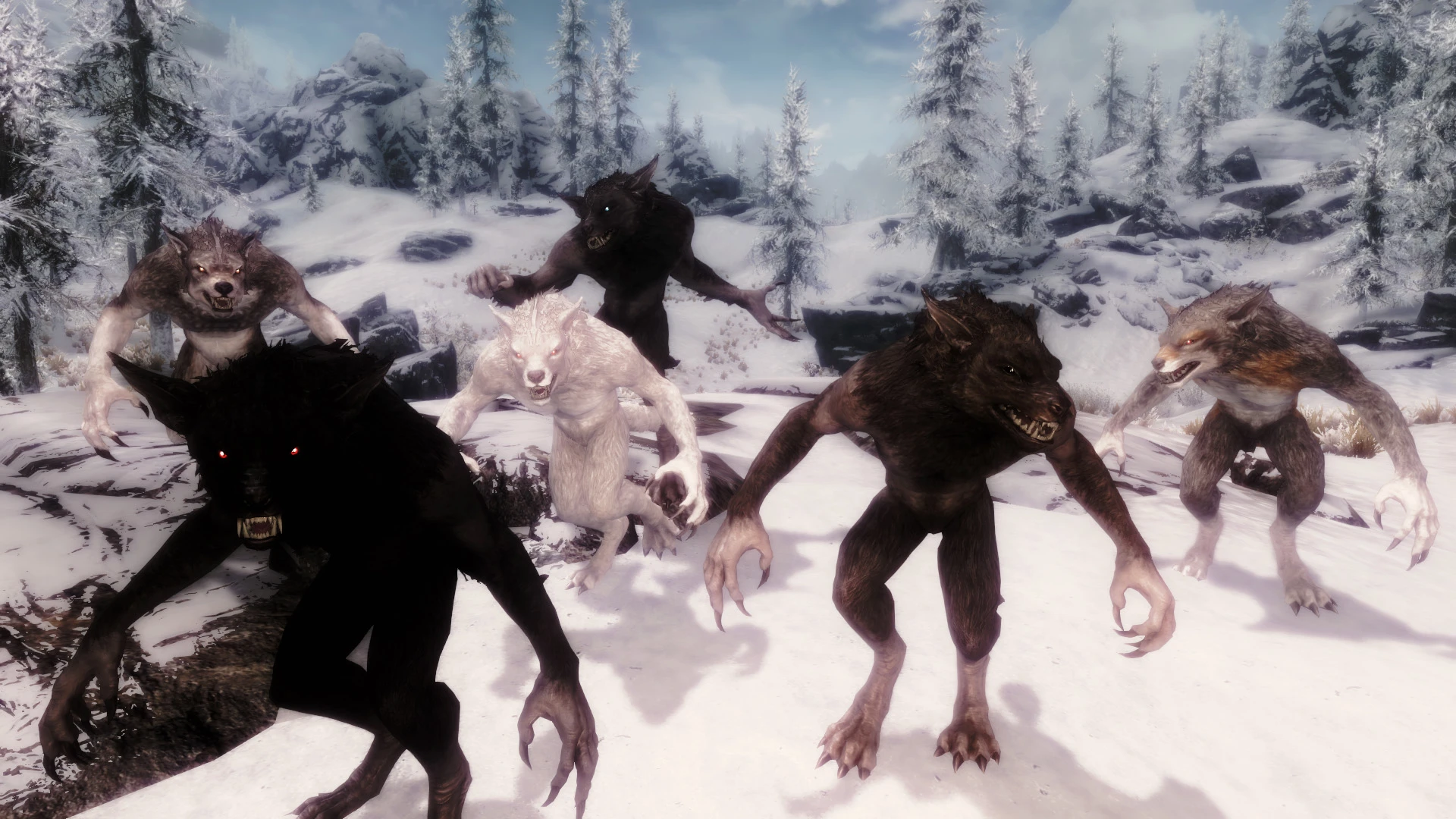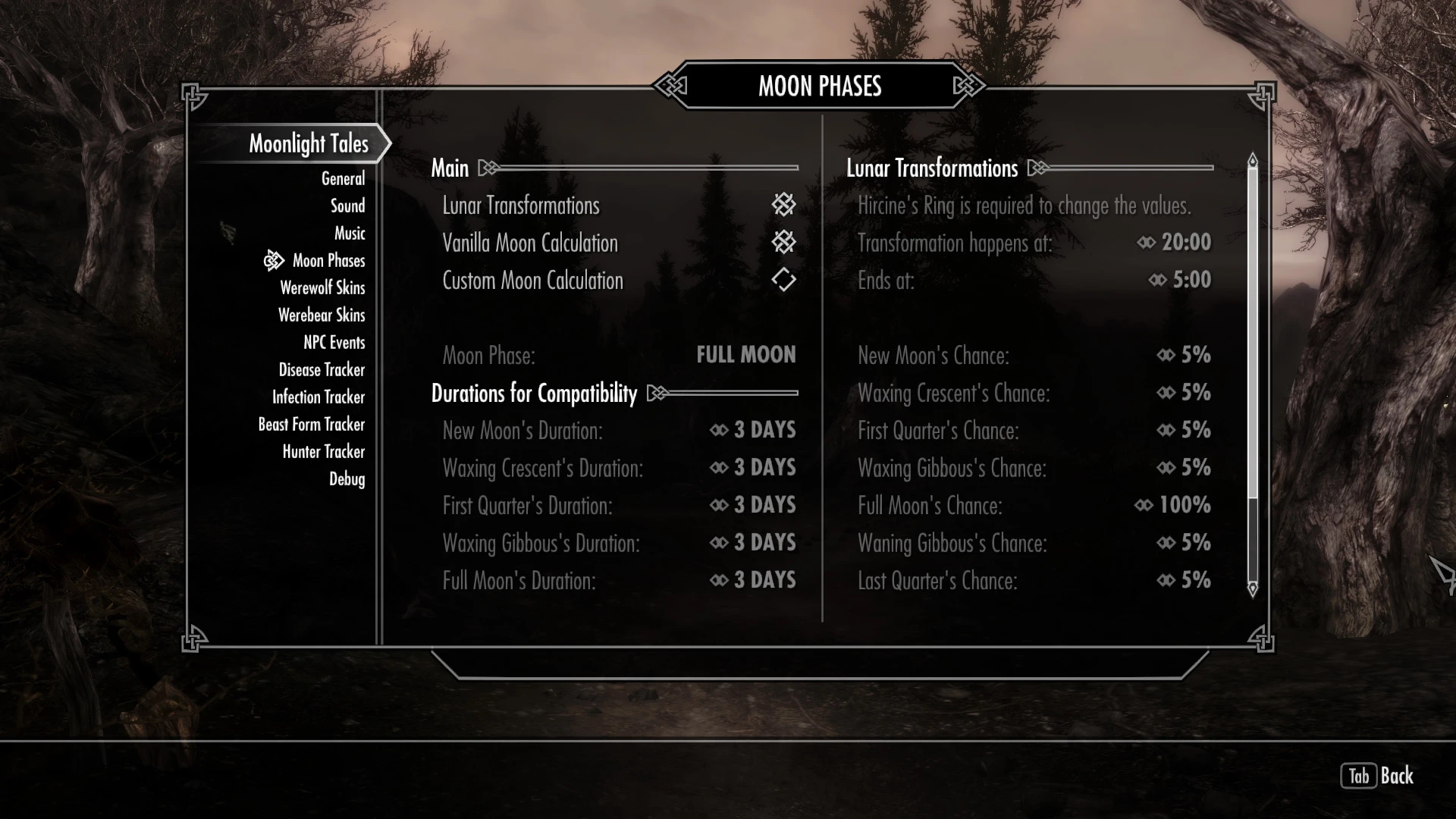-
Welcome to rpgcodex.net, a site dedicated to discussing computer based role-playing games in a free and open fashion. We're less strict than other forums, but please refer to the rules.
"This message is awaiting moderator approval": All new users must pass through our moderation queue before they will be able to post normally. Until your account has "passed" your posts will only be visible to yourself (and moderators) until they are approved. Give us a week to get around to approving / deleting / ignoring your mundane opinion on crap before hassling us about it. Once you have passed the moderation period (think of it as a test), you will be able to post normally, just like all the other retards.
You are using an out of date browser. It may not display this or other websites correctly.
You should upgrade or use an alternative browser.
You should upgrade or use an alternative browser.
World of Darkness Werewolf: The Apocalypse – Earthblood - action-RPG adaptation from Cyanide
Drog Black Tooth
Self-Ejected
- Joined
- Feb 20, 2008
- Messages
- 2,636
You can be a werewolf in Morrowind and Skyrim. Guess that's as close as it gets.
- Joined
- Oct 3, 2015
- Messages
- 13,657
And Daggerfall, where you can become not only a werewolf but also a wereboar.You can be a werewolf in Morrowind and Skyrim. Guess that's as close as it gets.


Why does it have to be the furries. I want moar licks!
Alex
Arcane
Which codex darling isn't.Bloodlines is over rated.
(snip...)
Arcanum.
- Joined
- Jan 28, 2011
- Messages
- 100,727















https://www.dreadcentral.com/news/2...f-apocalypse-seeks-bring-world-darkness-life/
https://www.gamewatcher.com/interviews/werewolf-the-apocolypse-interview/12854
E3 2017: CyanideWerewolf: The Apocalypse Seeks to Bring World of Darkness to Life
If you’re a fan of getting together with friends, cranking out some character sheets, and rolling some dice, then chances are you are a familiar with at least one of White Wolf’s “World of Darkness” games. The big three—Vampire: The Masquerade, Mage: The Ascension, and Werewolf: The Apocalypse—have millions of fans between them. While never attaining the popularity of the one-and-only Dungeons and Dragons, plenty of players prefer the expansive lore and deep roleplay that World of Darkness has to offer. Unfortunately, World of Darkness has made scant few appearances in the world of video games. You’d have to go back to 2004’s cult classic Vampire: The Masquerade – Bloodlines to find the most recent rendition. I have absolutely no idea why the property was left idle for so long (it might have something to do with the franchise rebooting and rebranding a couple of times), but the early demise of Troika Games left the promising Bloodlines in an ultimately unfinished state. If you haven’t ever checked it out, you really should. Over a decade of fan patches and mods have left the game a wonderful patchwork of amateur passion and idealism.

Though nothing can—nor should—ever fix this dancing.
A long time coming, the White Wolf World of Darkness is once again being brought to life in video game form. This time, it’s Cyanide Studio at the helm, and the world of Werewolf: The Apocalypse gracing our screens. Judging by the amount of questions I got about it at E3, the fans could not be happier. Seriously. I got more questions from other attendees about the secretive Werewolf: The Apocalypse than I did any of my other appointments. This has never happened to me before, but I would have strings of people come up to me as I stood in line to ask me what I found out about it. I’ll admit there was an air of mystique about it; without any trailer premier, it was featured on the Focus Home Interactive display and only available for private press interviews. I don’t think that the people at Focus knew just what kind of fan fascination this title would stir up.

This was seriously all of it.
Well now, here I am to let you all know what I know. Which admittedly, is not much. I got to speak with Game Director Julien Desourteaux, who told me everything he was able to about Werewolf: The Apocalypse. Mainly, that it’s still in prototype phase, has no release date, and they want to do lots and lots with it. Alright, that’s all folks! See you later!
I mostly kid, but I really don’t have a lot to actually show you about the game. Conceptually, Werewolf: The Apocalypse will focus on the interaction between Garou (werewolves) and humans. The expansion of technology and industrialization has forced the spirit realm into smaller and smaller pockets, and the Garou that defend them are unsure of how to deal with it. I mean, you could just eat all the humans, but that might not be very good for your soul. You could reason with them, but it’s really hard to stop the march of progress with words. What kind of Garou you’ll be, and how you ultimately deal with the human threat, is up to you.

Gameplay will split between three main werewolf forms. There’s the humanoid form, best for diplomacy and trying to interact with the human world. Then you have the wolf form, which gives you increased mobility and tunes you in more acutely with the spirit world. The third form is for combat, a hulking mass of flesh and fur that’s great for ripping things apart. A core element between the forms is managing your rage, which will cause you to frenzy when it boils over. Frenzy turns you into the ultimate unrestrained killing machine, unstoppable in combat but unable to distinguish between friend and foe. It isn’t the same, “hand your character sheet over to the DM,” that it was in the pen-and-paper, but rest assured that there will be consequences to letting the beast take over.

I also got to see a working mock-up of Werewolf: The Apocalypse‘s map, which you’ll be able to explore in a semi-open fashion. Rather than a true open world, you’ll be able to tackle each zone and resolve its issues in an order of your choosing. Each will be its own instanced area with a border, but that doesn’t mean that what happens in one won’t effect the others. It’s all glued together by a central massive forest hub, where the Garou will roam freely and commune with the spirits. The example Julien gave me of how this communion would work was a hypothetical quest given to you by the spirit of a waterfall. If you do what it wants (say, shut down the coal mine polluting the river), it will let you travel up the waterfall like a super industrious salmon.

Now this is normally the time I’d point to the studio’s pedigree as evidence for how the game might end up, but Cyanide hasn’t really come out with anything like this before. They have done RPGs before with Of Orcs and Men and A Game of Thrones, but neither can compare to what they are trying to do with Werewolf: The Apocalypse. I liked Styx 1 &2, so that gives me confidence. With no release date announced, there’s plenty of time to see how this will shape up. For fans, I think the fact that there’s something in the works from a developer that clearly knows and cares about the property is what matters. So what about you folks? Fans of World of Darkness? Ever try out Vampire: The Masquerade – Bloodlines? What kind of thing are you looking for in your ideal Werewolf: The Apocalypse game? Let me know below!
https://www.gamewatcher.com/interviews/werewolf-the-apocolypse-interview/12854
WEREWOLF: THE APOCALYPSE - AN INTERVIEW WITH CYANIDE STUDIO'S JULIEN DESOURTEAUX [E3 2017]
The World of Darkness series of games and entertainment has always been a rich tapestry of lore and imagination that has allowed gamers to undertake the roles of many mythical creatures of the night in various unique settings. Most people are probably familiar with the popular role-playing games, Vampire: The Masquerade – Redemption and Vampire: The Masquerade – Bloodlines, but these are just a couple entries in a grand library of great games that have come from White Wolf Publishing. Fortunately, White Wolf has teamed up with Focus Home Interactive and Cyanide Studios to bring another of their grand franchises to PCs and consoles. This time, it’s Werewolf: The Apocalypse.
In a world where various factions are ushering the destruction of nature, werewolves stand as the primal bastions against the end of the world. What began as a pen and paper role-playing experience is now becoming an interactive journey that will have players delving deep into the powers of the werewolf to protect the natural and spiritual world. At E3 2017, we caught up to Cyanide Studio game designer Julien Desourteaux to speak about how he and his team are bringing Werewolf new life as a video game. Desourteaux shared the interesting world of Werewolf with us, as well as how players will take on the role of the Garou to defend the forces of nature, or give into their bestial blood and wreak havoc.
GameWatcher: So for the uninitiated who may not be familiar with Werewolf from its days as a pen and paper game, what can you say about this series? What is at the core of Werewolf: The Apocalypse?
Julien Desourteaux: Werewolf is all about a fight against human expansion and corruption of nature. This isn’t a Twilight thing. Being a werewolf in this game means a constant balance of primal nature and rage. Players will take on the role of a proud and bestial creature. To that end, and for what the purpose of this game’s werewolves are, you are a bit of an ecoterrorist in Werewolf. In a time when the political climate is somewhat rampant with talk and governing of climate change, environmental preservation, and other such issues, I feel it’s the perfect time to explore a series like this.
GameWatcher: The original context of Werewolf is that there is cataclysmic event known as The Apocalypse that the werewolves, known previously in the series as the Garou, are fighting against, right?
Desourteaux: Correct. In the original pen and paper game, their mission was to kill those who would move the world towards the Apocalypse either wittingly or unwittingly. It’s always been sort of a fiction that plays at the edge of reality where these mythical creatures are fighting a problem very much inspired by real-world issues. For the purpose of our game, we’re going with an action-RPG to convey that world. It’s based upon a lot of the rules of the pen and paper game, but we’re reworking the gameplay mechanics to make it a far more moving and visceral thing.
GameWatcher: Could you expand upon that? What kind of mechanics will players be using as they step into the fur and claws of the Garou?
Desourteaux: So the main three mechanics behind Werewolf: The Apocalypse are combat, exploration, and interaction, and at the center of all of that is rage management. Rage is a factor that has to be maintained by the player because if the Garou’s rage gets out of control, they will frenzy. There are pros and cons to that. Certainly it’s great for combat, but there could be consequences as well. For example, you won’t be able to tell friend from foe. You will fight all present and that could lead to attacking an ally. You can’t go back until there are no more threats present. Likewise, if you’re in dialogue with a character and you’re overcome by rage, your character might eviscerate an important character.
GameWatcher: So if you don’t maintain your rage, you could lose out on a quality source of information that could help you along.
Desourteaux: Absolutely, although we don’t intend to shoehorn you with that outcome as well. There will be other means to gain information. This game doesn’t really judge the player for their actions, although you’ll have to deal with the consequences. Killing, frenzying, and brutality feeds this entity that feeds on sorrow, anger, fears, and rage. It is to say a player that favors combat and frenzying above the other factors will feed that entity and it will create greater enemies that will come after you as a result. It’s sort of how we also incentivize stealth, exploration, and interaction. Although much of this is an action-RPG, we’re designing it to be sort of like a puzzle with multiple solutions. There isn’t one perfect way to play. It will be up to the player to decide which situation calls for brutality or other less violent measures.
GameWatcher: Where are we at in Werewolf? What kind of place are we exploring and interacting with?
Desourteaux: The area is quite large. As mentioned before, there is a human element of corruption and pollution at work and there is a balance between nature and destructive technology. At the center of all of this is the Pentex Corporation. They are a huge corporation that represents a ton of industries that harvest various natural areas for human progress. They’re very much the player’s target. Players will have freedom to choose where they go and what missions they pursue in this world. At the center of it is this area known as Penumbra, which is a place sort of set between the physical world and the spiritual world. Garou will be able to make use of this entity known as the Great Spirit of the Waterfall and she is where you will get sidequests and challenges. Pass those and the Spirit will grant you various rewards. For instance, if you do well, she can open a shortcut for you between regions. There will also be other tribes of werewolf. Some will be aggressive and some will be friendly. They’ll be interesting to interact with and we wanted to instill a sense of what kind of werewolf the player would become by way of these tribes.
GameWatcher: Does the way you play affect what paths will be open to you? If you’ve been brutal or stealthy, does it make a difference in where you go and what you can do?
Desourteaux: No, it will affect gameplay, but not the story. We wanted to go with a strong and well-built story. The gameplay will be entirely your experience with it, but there are no plans at this time to branch the story by how you use the mechanics. There will be some level of choice, but most of it will be built towards whether you advance the Apocalypse or stifle by playing aggressive or passive.
GameWatcher: You mentioned there will be combat, exploration, interaction, and stealth elements. How will these various mechanics come into play and interconnect in Werewolf?
Desourteaux: So in Werewolf, progression will be based upon how you play. Moreover, the core mechanics are each bound to a special form. For example, when you fight, you’ll take your Garou form. It’s obviously better to be in that massive build when it comes to taking and dishing out damage. Meanwhile, in exploration, you’ll be in a wolf form that allows you to move much more quickly and efficiently. We’re building it so you’ll be able to move between forms pretty seamlessly based on what you need. For instance, if you take a long jump and then attack, you can move from wolf into Garou for a vicious lunge. We want it to be visceral in many ways, but we also want it to be dynamic.
GameWatcher: As an action-RPG, how will players progress in Werewolf? What goes into your character’s strengths and evolution?
Desourteaux: We will have skill trees in the game. Players will choose between various archetypes that determine certain strengths and weaknesses. There is no bad way to choose. We supply the tools to play how you want. A good part of the core will be based around combat, but that’s also sort of a fallback when other tactics don’t work. If you fail a stealth sequence, we give you tools to fight, or you can simply skip the stealth and jump right into the fight from the get-go.
GameWatcher: Let’s talk a little bit about the interaction aspect of the core mechanics. When you say interaction, do you mean just talking with people, or does that include environmental interaction as well?
Desourteaux: It’s both. As I said, you may talk to important people or various Garou tribes. Dialogue is absolutely an interaction, but you can also interact with environment in ways that allow you to trap enemies, acquire information, sneak around, and more.
GameWatcher: So this is very much going to be a game about interchanging these three major mechanics as you need them as opposed to favoring and specializing in one?
Desourteaux: Yes, absolutely. Moving around and being sneaky throughout an area might get you somewhere you couldn’t if you came barging in the front. Your Garou form is strong, but the more you fight, the more your rage builds. When you frenzy, you’ll access some very brutal attacks and you’ll feel a satisfying sense of power, but some attacks and executions are lengthy and grisly. That could be a problem when you’re being shot at by snipers. Meanwhile, in a given scenario, if an area is cluttered and you need space to fight, you can use your combat to destroy boxes and other obstacles and clear the way for some serious damage. Alternatively, you can carefully avoid a lot of trouble by exploring and planning your way around an area and the enemies. You can discover information and track enemies to overcome a large portion of an area before you ever have to fight. That’s the kind of seamless, player choice-driven experience we’re seeking to build with this rendition of Werewolf: The Apocalypse.
Werewolf is a series that is heavy into nature, human corruption, and the way of the legendary beasts. Though Cyanide Studio is early into production of the game, their focus on translating all of what their source material has to offer is promising to say the least. Sooner or later, we’re certain to see Werewolf: The Apocalypse burst onto the scene with flesh-rending claws and blood-curdling howls. If what we’ve heard from Desourteaux is any indication, it’s going to be a wait well worth it and we’re excited to see more.
Excidium II
Self-Ejected
Where the gameplay at.
Drog Black Tooth
Self-Ejected
- Joined
- Feb 20, 2008
- Messages
- 2,636
- Joined
- Jan 28, 2011
- Messages
- 100,727















https://www.gamereactor.eu/news/561953/Werewolf The Apocalypse is all about rage management/
These guys don't upload their interviews to YouTube anymore so you'll have to click the link.
Werewolf: The Apocalypse is all about rage management
Cyanide's Desourteaux explains how rage manifests itself in the game.
Announced earlier this year, the reveal for Werewolf: The Apocalypse didn't include many concrete details. However, after speaking to game director Julien Desourteaux at E3, we now have a much better idea as to what Cyanide Studios is planning with the game based on the World of Darkness universe.
For starters, it's an action-RPG, set in modern times, and (shock, horror) players will take on the role of a werewolf. It's an interesting premise, especially when you consider what they'll be working towards.
"You are a kind of eco-terrorist," Desourteaux told us, "and you fight for mother nature that is invaded by the human expansion. All the fear, the [...] sorrow, and the rage that can be created by this human expansion will feed a great Wyrm, a special entity that is evil, and you have to fight that to defend Gaia."
There's a tagline associated with White Wolf's IP - when will you rage? - and in the game that translates into a unique feature called rage management, where players have to watch their behaviour and be aware of the consequences of going into a "frenzy", a special state that the player will have to deal with (such as during combat where you'll lose helpful information, or in dialogue where you can lose control of a conversation).
At the time that the interview was filmed the game was still in pre-production, and there's no release date in sight. We do know that it will head to PC, PS4 and Xbox One, with Cyanide and Focus also looking at additional platforms. Watch the full interview below for more on the game, the setting, and the studio's plans.
These guys don't upload their interviews to YouTube anymore so you'll have to click the link.
LESS T_T
Arcane
- Joined
- Oct 5, 2012
- Messages
- 13,582
![The Year of Incline [2014] Codex 2014](/forums/smiles/campaign_tags/campaign_incline2014.png)
Official name is Werewolf: Earth Blood: http://www.eurogamer.net/articles/2...-new-game-appears-to-be-called-little-orpheus
It's 16.45% of the total budget (€911,640).
The list also shows a €150,000 grant for Werewolf: Earth Blood (€150,000), which must be the official name of the Werewolf: The Apocalypse game French studio Cyanide (Blood Bowl) is working on.
It's 16.45% of the total budget (€911,640).
- Joined
- Nov 17, 2015
- Messages
- 5,667




oWoD ecowarrior stuff is still shite. Opposing 'destruction of the environment' because of urban development, dirty hippies go home.Not expecting anything but a shitty actiongameadvertisement.
Even VtM:B was a miracle. Making a decent cRPG out of Werewolf (nuWoD's Forsaken to boot)? I have no faith in any dev being that competent or the producers taking a chance to try it.
Relax, man. If the title of the game is anything to go by, it should be oWoD. There's a reason all those WoD 20 anniversary games got made.
https://www.gamereactor.eu/news/561953/Werewolf The Apocalypse is all about rage management/
"You are a kind of eco-terrorist," Desourteaux told us, "and you fight for mother nature that is invaded by the human expansion. All the fear, the [...] sorrow, and the rage that can be created by this human expansion will feed a great Wyrm, a special entity that is evil, and you have to fight that to defend Gaia."
 The upside is, one game less whose developement to follow.
The upside is, one game less whose developement to follow.Delterius
Arcane
Pretty sure that's been standard werewolf fair for 20 years or so.The upside is, one game less whose developement to follow.
- Joined
- Nov 17, 2015
- Messages
- 5,667




I am very familiar with that, as you could deduce from the previous quoted message. I think read the old WoD werewolf sourcebook back in '98.Pretty sure that's been standard werewolf fair for 20 years or so.The upside is, one game less whose developement to follow.
Even if it is the original setup, doesn't mean it isn't a stupid. They could freely choose what to emphasize.
Lambach
Arcane

A modern WoD game is finally being developed and we get by far the least interesting of all the settings i.e. D&D for furries. God fucking damn it.


Delterius
Arcane
Even if it is the original setup, doesn't mean it isn't a stupid. They could freely choose what to emphasize.
Werewolfe isn't even close to my fifth favorite setting, but what you're asking here is for Vampire without Jyhad or Mage without the Technocracy. Because 'hippies are dumb'? While we are at we should list all the themes and stories we want to censor in videogames.
Last edited:
- Joined
- Nov 17, 2015
- Messages
- 5,667




I am not asking to censor anything like you commies mostly do, I am just stating my preference.
I think the tree-hugging approach was always the weakness of werewolf, why not have just primal rage and spirits and some animism?
I think the tree-hugging approach was always the weakness of werewolf, why not have just primal rage and spirits and some animism?
Delterius
Arcane
Why not have those primal animistic spirits give a shit about the natural order they are born from?I think the tree-hugging approach was always the weakness of werewolf, why not have just primal rage and spirits and some animism?
- Joined
- Nov 17, 2015
- Messages
- 5,667




Because it works as well without.Why not have those primal animistic spirits give a shit about the natural order they are born from?I think the tree-hugging approach was always the weakness of werewolf, why not have just primal rage and spirits and some animism?

Yeah, I don't get what is supposed to be stupid about it, either.
Eco-terrorism is a pretty standard thing in WoD as well as Shadowrun and other settings.
Played many rounds dealing with it in one way or another.
It comes off as pretty natural (huehuehue) considering the source of certain powers is nature.
Eco-terrorism is a pretty standard thing in WoD as well as Shadowrun and other settings.
Played many rounds dealing with it in one way or another.
It comes off as pretty natural (huehuehue) considering the source of certain powers is nature.
- Joined
- Nov 17, 2015
- Messages
- 5,667




Well, stupid is perhaps a strong wording, it's just I never liked it riding the coattails of the environmentalist movement in the political climate of that time.
Or mayhaps it's just vampire being so much cooler setting with all its 90s edginess and clichées.
Or mayhaps it's just vampire being so much cooler setting with all its 90s edginess and clichées.
Great Deceiver
Arcane
- Joined
- Aug 10, 2012
- Messages
- 5,918
I remember in the 2nd edition of the Werewolf rulebook, the sample scenario had the werewolf PCs fighting for MUH GAIA against the an evil possessed XEROX MACHINE
Can't get much stupider than that, really.
Can't get much stupider than that, really.














![Glory to Codexia! [2012] Codex 2012](/forums/smiles/campaign_tags/campaign_slushfund2012.png)








